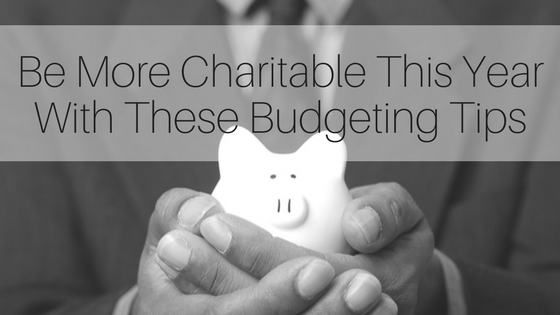
Money is always a difficult subject to traverse. It has become a taboo subject to talk about because of how quickly it can become a competitive conversation, often leaving one side feeling inadequate due to unequal numbers. It can also be the cause of heated discussions when people don’t agree on how finances should be handled. But even when not expressed vocally, money can be an area within your personal life that is responsible for increased levels of stress and worry concerning your future security.
Unfortunately, as a result of this financial anxiety, it hinders your ability to feel like you have flexibility within your budget to use towards more meaningful contributions, like donating funds to an organization that you care deeply about.
Utilize the following budgeting strategies regularly and you will start to notice that you will soon have more money that you can dedicate to helping those in need without feeling like you are jeopardizing your financial security.
Prioritize your monthly expenses.
A basic budgeting rule of thumb is to sit down and dissect your monthly expenses, coming up with an estimated number that should typically fluctuate around the same amount every month. This number should include your most important bills like: rent or mortgage payments, utility payments, grocery bills, etc. These important expenses need to be where you first focus your money before you can dedicate it to other avenues.
Decide what you are going to do with the leftover money.
Once you have dedicated the necessary money to your committed expenses, you will have to decide on how to spread around the remaining money. Some of this money should be stored in a savings account or invested into your financial future, but the rest will be for extra expenses. This could be money spent eating out, at happy hour, or for fun social events.
As you can expect, there will be some sacrifices that you will need to make with the leftover money so that you can start to put more money to more meaningful events and/or organizations in need. This may mean packing your lunch to work during the week or cooking food at home more frequently. This money that you would typically spend on eating out, for example, can then be donated to charity.
Decide if these will be occasional donations or monthly contributions.
As you start setting aside more money to give to charity, you need to decide how frequently you will want to contribute. This will help you develop a more structured budgeting system once you can identify how often you plan to donate a certain amount to charity, which you can then save for in additional to your normal expenses.
Never let money be the reason you can’t support an organization you are passionate about. Even if you can only donate a small amount of your income once a month, that money is still being put towards a greater good. So keep these strategies in mind so you can begin committing more of your finances to a great cause!






